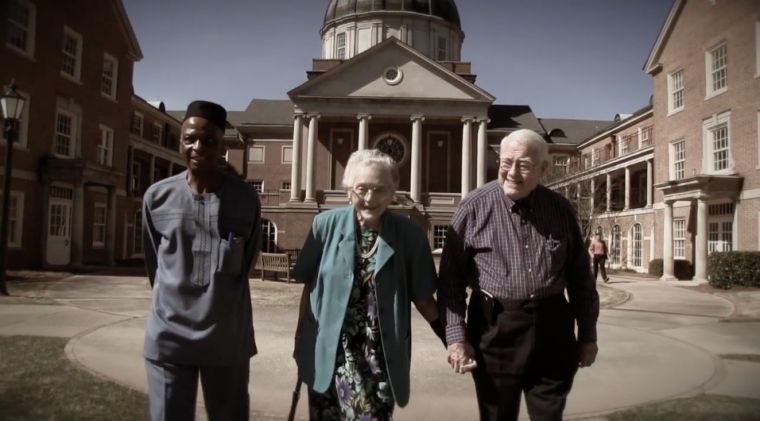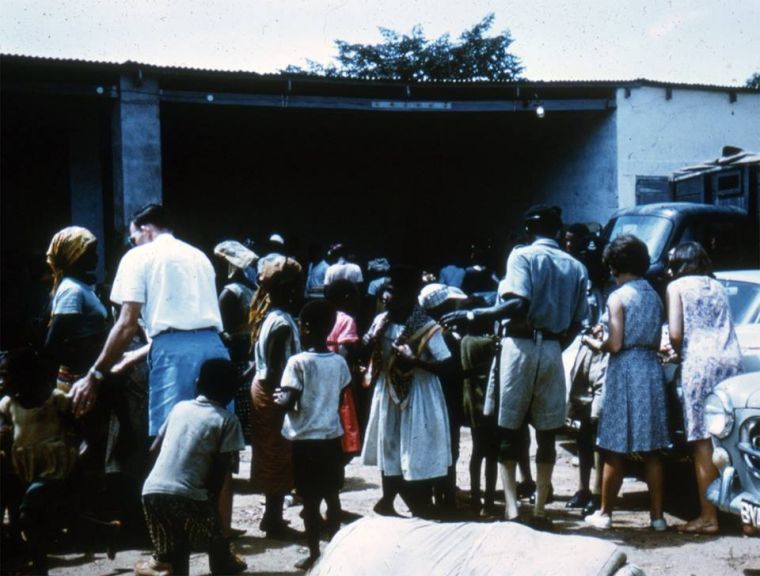Nigeria 1966: How faithful missionaries saved countless lives in a forgotten genocide

Think of Nigeria today and Boko Haram springs to mind, with its murderous version of Islam which has been responsible for untold suffering. But Nigeria itself is a colonial construction, created by Britain out of a conglomeration of different tribes and languages and given independence in 1960. It has known civilian governments and military dictarships as different tribes and interests competed for dominance, and has not yet come close to fulfilling its potential as a beacon of peace, prosperity and democracy for Africa.
One of the earliest trials faced by the new nation was the genocide committed against the Igbo people in Northern Nigeria in 1966, a crime hardly remembered in much of the world. The exact number who died is unknown, but it's estimated at between 30,000 and 50,000. They were murdered by Hausa-Fulani soldiers and civilians seeking revenge for a failed coup-d'état, and the atrocities led directly to the Biafran war of 1967-70; more than 3 million civilians died of starvation in that conflict, in which Nigeria deliberately used hunger as a weapon of war.
What's also been forgotten is the role played by the many missionaries in the region in trying to help those attacked by government forces – and that's an omission a US organisation is aiming to remedy.
EthicsDaily.com, a division of the Baptist Centre for Ethics whose founder Robert Parham was the child of missionary parents in Nigeria during the genocide, has released a feature-length documentary entitled The Disturbances in time for the 50th anniversary of the events. According to EthicsDaily, the death toll would have been even higher if Christian missionaries and Nigerian pastors had not taken action to save lives. Their heroic work has been unknown, primarily because those involved never spoke about what happened, using veiled language and euphemisms in public reports and statements.

Parham and his team have interviewed missionaries and their children with denominations including the Assemblies of God and the Southern Baptist Convention, and mission organisations including Sudan Interior Mission and Sudan United Mission, as well as Nigerians.
The producers conducted more than two dozen on-camera interviews, acquired nearly 2,500 documents, slides and photographs, obtained several hours of missionary 8mm and 16mm home movies, worked with roughly a dozen different denominational, educational and filmic archives, and talked to scores of other witnesses.
Parham got the idea for the documentary after uncovering cryptic correspondence where his father wrote that he couldn't share everything that happened. The interviews that ensued are often tearful as witnesses reveal what they saw.
"Fifty years later, I think there's a certain freedom to tell the story," Parham said. "They have a need to tell the story."
Many of the interviewees have never talked publicly about their experiences. Some fearerd being judged because of what they did or did not do, knowing that their decisions meant life or death for others. "You fly by the seat of your pants; we had no training, no experience, we had no resources except to pray," says one. "I don't know if we felt guilty for what happened," says another, while another speaks of the sadness, and depression left by the events.
As well as the horrors, however, there are moving stories of rescue – like Jonathan Ikerionwu, who escaped with the help of missionaries and made his way back to the Baptist High School in Jos. He earned a doctorate in the US and is now a professor in Nigeria, and says he owes his life to Bill and Audrey Cowley.
The Disturbances is a first-class piece of documentary that recovers a vital piece of history that could have been lost forever. But it's also a window into how Christians responded at a time of terrible danger and distress, and how they remained faithful to their calling. It is not just informative, but inspirational.
The Disturbances is available to pre-order at http://www.thedisturbances.com/.











